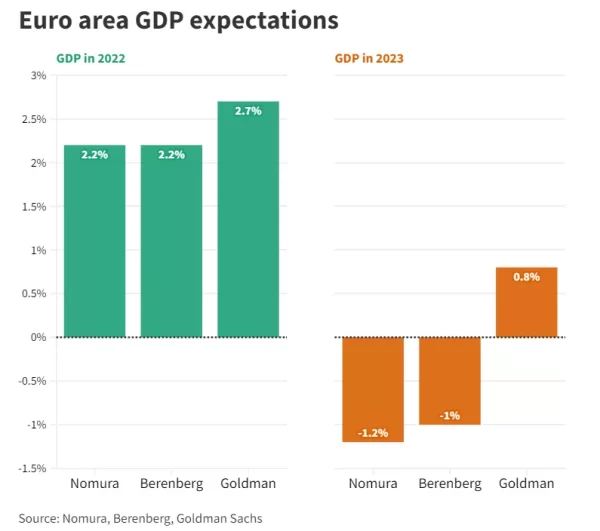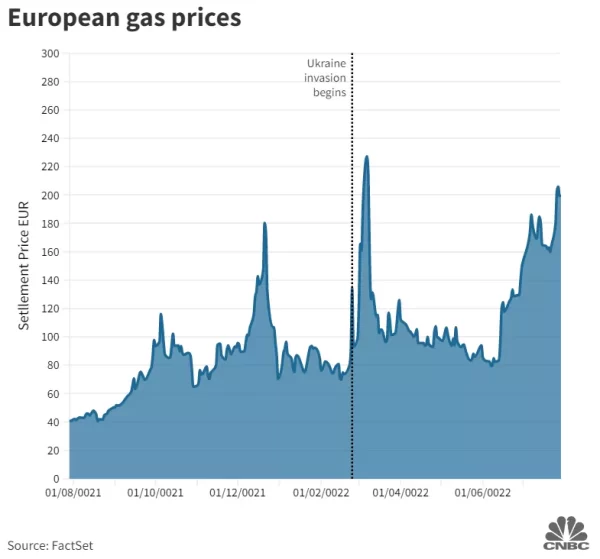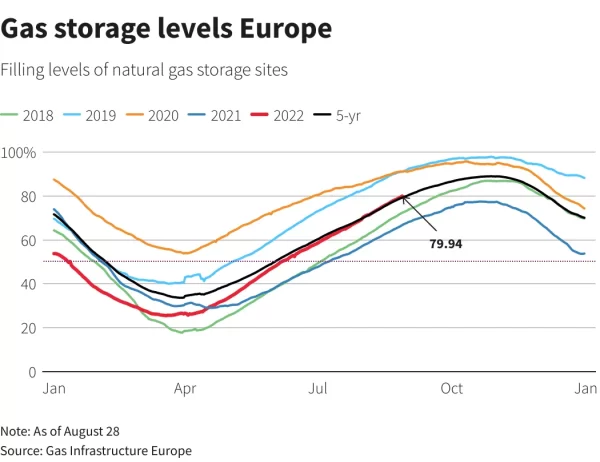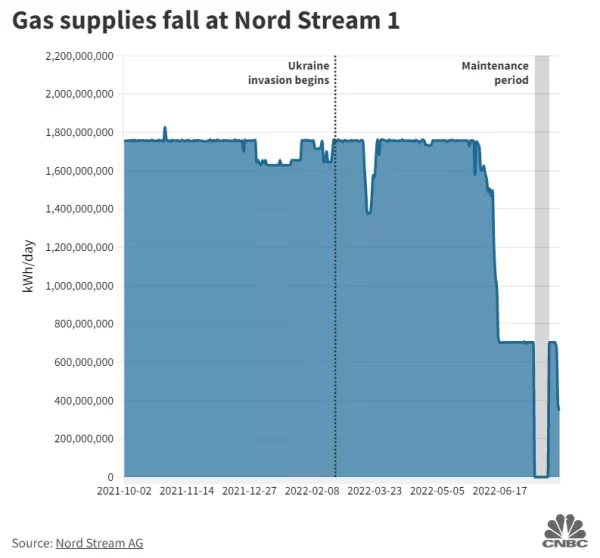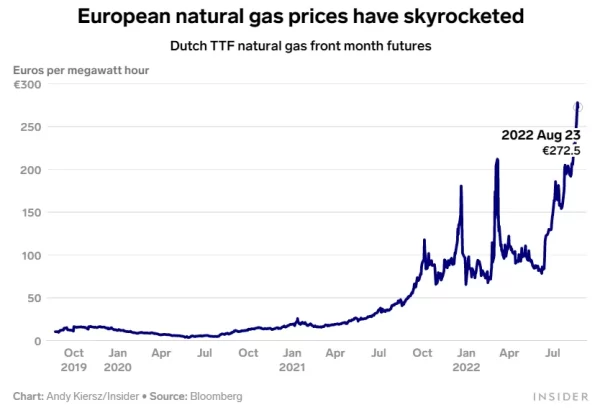Natural gas is the cornerstone of the European economy. If most of the world is struggling with rising energy prices, Europe is under the fiercest attack among us. Natural gas and electricity prices have risen to “ridiculous” levels, increasing pressure on consumers and businesses across the EU. As the energy crisis worsened, inflation jumped in August to 9.1% in the Eurozone, forcing European leaders to improvise rescue plans and emergency measures to spare consumers the devastating economic pain in the upcoming winter.
How will the European Union intervene to ease gas prices?
The EU plans to intervene in markets directly in the short term to curb rising energy costs for households and businesses, threatening to push the Euro area’s economy into a deep recession.
The European Commission is working on unspecified emergency proposals to ease energy costs this winter, ahead of the EU energy ministers meeting on September 9. Meanwhile, efforts to fill storage sites are proceeding faster than planned, providing some relief and increasing Europe’s chances of getting through the winter with enough supplies.
What are the suggested actions?
- The EU agreed in late July to cut gas consumption by 15% this winter from average levels in 2017-2021. Gas consumption in Europe in the first half of August was 11% lower. Gas use in Germany fell 21% in July compared to the 2018-2021 average.
- Germany has introduced some measures to save energy. They take effect this month, including a ban on gas-heated private swimming pools, reduced lighting for public landmarks, and a ban on all-day heated stores. To survive, Germany needs to cut gas consumption by 20 to 25% this winter.
- Rather, Germany is willing to consider a European price cap on gas, a measure Europe has previously argued against, but now it is different.
- Britain is working to reopen the UK’s largest gas storage facility.
Is filling natural gas storage enough to secure fuel in the winter?
The EU is on the right track to filling its gas storage facilities targets. Countries will surpass their target of having 80% of full storage by November, with European storage facilities filling an average of 79.9%.
But analysts warn that the biggest factor in securing energy this winter is cutting consumption to ensure stored fuel lasts through the cooler months. Reducing demand will be more important than storage. If countries fail, Europe’s gas facilities will be empty by March and before winter ends.
To avoid a crisis in the winter, countries need to cut gas consumption every month by 15% below the five-year average. That would leave post-winter storage 45% full if Russia kept sending gas and 26% full if Russia cut flows from October.
How much Russian gas reaches Europe now?
Russia supplies Europe with more than 40% of its natural gas needs, but after the war in Ukraine, Russian flows have already fallen sharply.
Moscow reduced supplies via Nord Stream 1, Europe’s main pipeline, to 40% capacity in June and to 20% in July. The justifications were maintenance problems and sanctions, which Russia says prevent the return and installation of equipment.
The amount of gas Russia sends via Nord Stream 1 is now only 20%, so storage alone will not be enough to rebalance the markets. Especially with the repeated closure of the Russian pipeline for various reasons. It was closed for ten days in July. It was closed again last week for three days due to maintenance.
Crazy Record Gas prices!
With an energy crisis raging in Europe, the uncertainty over the flow of natural gas has sent prices to unprecedented levels.
- On the oil scale, the price of natural gas has reached the equivalent of $500 per barrel, ten times the current average oil price ($100).
- Compared to the US, gas in Europe has risen to more than 10 times its level in the US, with US gas trading close to $10/MMBtu.
- While European gas prices reached a record level above 340 euros per megawatt-hour, or $100 per million British thermal units.
These numbers raised fears of the coming winter and cold homes without gas for heating, in addition to the explicit threat to energy-intensive industries.
A rare drop in gas prices and temporary relief
With the possibility of direct intervention in energy markets from the EU to ease the energy crisis, gas prices dropped, witnessing a rare relief from the recent rises.
Natural gas prices in Europe dropped sharply to €220 per megawatt hour, declining by more than 30% from record levels near 340 euros.
The German economy minister expects gas prices to drop more soon. Germany, the largest gas consumer in Europe, said its gas storage facilities are set to be 85% full by next month.

